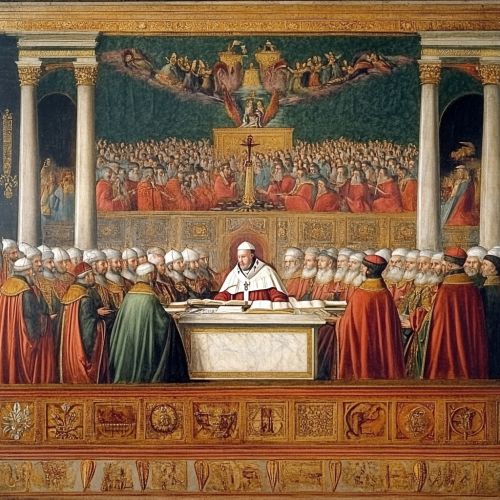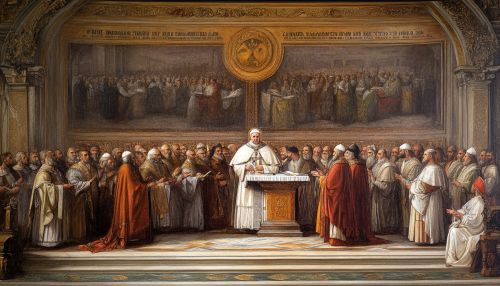Pope Innocent III
Early Life and Education
Pope Innocent III, born Lotario dei Conti di Segni, was born around 1160 in Gavignano, Italy. He was a member of the noble Conti family, which held significant influence in the region. Lotario was educated in Rome, Paris, and Bologna, where he studied theology and canon law. His education was comprehensive, reflecting the intellectual rigor of the period, and it prepared him for a life in the ecclesiastical hierarchy.
Election to the Papacy
Lotario was elected pope on January 8, 1198, following the death of Pope Celestine III. He took the name Innocent III and was consecrated on February 22, 1198. His election marked the beginning of one of the most powerful and influential pontificates in the history of the Catholic Church.
Papal Policies and Reforms
Innocent III is renowned for his ambitious and wide-ranging reforms. He sought to assert the supremacy of the papacy over secular rulers, a concept known as papal supremacy. He believed that the pope was the ultimate authority on earth, a view that often brought him into conflict with European monarchs.
Ecclesiastical Reforms
Innocent III implemented significant reforms within the church. He convened the Fourth Lateran Council in 1215, which addressed issues such as clerical discipline, the administration of sacraments, and the moral conduct of the clergy. The council also mandated the annual confession and communion for all Christians, a practice that became a cornerstone of Catholic piety.
Political Influence
Innocent III wielded considerable political influence. He played a pivotal role in the Holy Roman Empire, supporting Otto IV initially but later shifting his support to Frederick II. His involvement in the politics of the empire exemplified his belief in the pope's authority over secular rulers.
Crusades and Military Campaigns
Innocent III was a fervent supporter of the Crusades. He called for the Fourth Crusade in 1198, aiming to reclaim Jerusalem from Muslim control. However, the crusade deviated from its original purpose, culminating in the sack of Constantinople in 1204. This event deepened the schism between the Eastern Orthodox and Roman Catholic Churches.
Albigensian Crusade
Innocent III also initiated the Albigensian Crusade against the Cathars in southern France. The Cathars were deemed heretical by the church, and the crusade aimed to eradicate their influence. This campaign was marked by significant violence and had a lasting impact on the region.
The Fourth Lateran Council
The Fourth Lateran Council, convened by Innocent III in 1215, was one of the most important councils in the history of the Catholic Church. It addressed a wide range of issues, including the nature of the Eucharist, the role of the laity, and the conduct of the clergy. The council's decrees had a profound and lasting impact on the church.


Relationship with Secular Rulers
Innocent III's pontificate was marked by his complex relationships with secular rulers. He excommunicated King John of England over the appointment of the Archbishop of Canterbury, leading to the interdict of England. This conflict was resolved when John submitted to the pope, acknowledging him as his feudal lord.
Legacy and Impact
Pope Innocent III's legacy is multifaceted. He strengthened the papacy's authority, reformed the church, and played a crucial role in the politics of his time. His pontificate left an indelible mark on the Catholic Church and European history.
